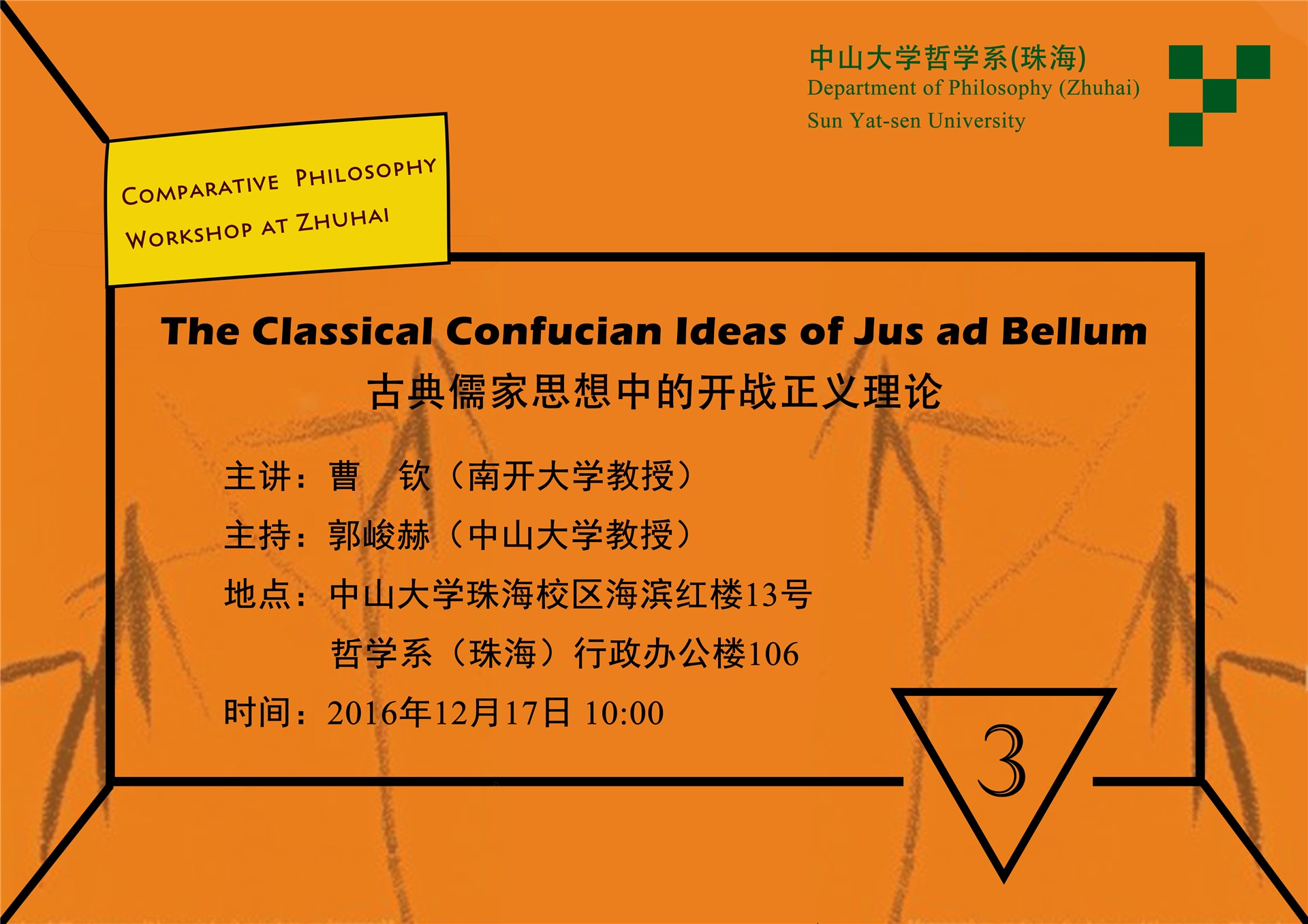Comparative Philosophy Workshop (III):The Classical Confucian Ideas of Jus ad Bellum
古典儒家思想中的开战正义理论

Comparative Philosophy Workshop (III)
Organizer: Department of Philosophy (Zhuhai),Sun Yat-sen University
Topic: The Classical Confucian Ideas of Jus ad Bellum
Speaker: Qin CAO (Professor, University of Nankai)
Moderator: Jun-Hyeok Kwak (Professor, Sun Yat-sen University)
Time: Dec. 17th, 10:00am-12:00am
Venue: No.13 Administrative Building of Department of Philosophy (Zhuhai), SYSU
In this essay, I will focus on the ancient Confucian ideas about war as an example of the traditional Chinese theory of jus ad bellum. More specifically, I will concentrate on the arguments of Confucius and Mencius – the two most respected sages in the Confucian tradition. The reason to use them as exemplars is similar to some recent scholars who wrote on the same or similar topics. The Spring and Autumn Era (the 8th century B.C. to the 5th century B.C.) and the Warring States Era (the 5th century B.C. to 221 B.C.) – the time Confucius and Mencius lived – were periods in which “China went through dramatic changes…that set the basic political framework for the following 2,000 years of Chinese history”, and “the debates among political philosophers” during this period “contributed to these changes".
Certainly, those two eras – especially the Warring States Era – were known as a period in which various schools of thought thrived, and Confucianism was only one among the many schools appeared during these periods. However, like Daniel A. Bell, I will limit my discussion to Confucianism – the “most influential East Asian political philosophy", and especially “to the values espoused by Confucius and Mencius”, for the former's Analects is “the central founding text in the Confucian tradition”, and the latter, “who elaborated and systematized Confucius’s ideas, became its most famous exponent”. Besides, Mencius also “continues to be the most influential theorist of war and just war in the Confucian tradition”. Therefore, I will use the text of Analects and Mencius as the primary source of the discussion in this essay.
Comparative Philosophy Workshop系列第三讲
主办:中山大学哲学系(珠海)
主题:古典儒家思想中的开战正义理论
主讲:曹 钦(南开大学教授)
主持:郭峻赫(中山大学教授)
时间:2016年12月17日上午10:00
地点:中山大学珠海校区海滨红楼13号哲学系(珠海)行政办公楼106
摘要:孔子与孟子的思想对中国影响深远,然而, 两人所处的时代都与他们的理想相去甚远,因而不得不对现实有所妥协。在关于“开战正义”的问题上,孔子虽然推崇“礼乐征伐自天子出”的封建等级制度,但在论及时事之时,也不否认其他行为者在特定情境下实行战争的合理性。身处战国时期的孟子,则将开战正义的焦点从参战者的身份转移到了进行战争的理由之上,从而发掘出了为革命战争与人道主义干涉提供辩护的可能性。这也为近代以来流行的、以主权国家为中心的正义战争观提供了新的参考视角。


